Top 10 Vegan Sources of Protein
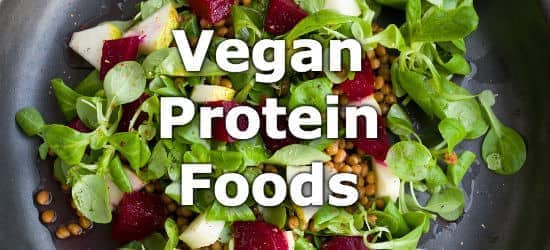
Veganism is a diet that avoids all foods from animals. This includes meats, seafood, cheese, milk, and eggs. Some vegans are concerned about getting enough protein, including adequate amounts of all nine of the essential amino acids.
Although it's certainly possible to meet your protein requirements entirely from plant sources (1), not all plant proteins are complete, meaning that they may not contain adequate levels of all nine of the essential amino acids. Combining proteins from different plants can help to ensure that you're getting all of the amino acids that you need. You can use our Complete Protein Calculator to find out whether a certain combination of plant foods would provide you with complete protein.
There are quite a few artificial meat products currently on the market. These are very highly processed foods. They generally use a high-protein plant food as a base, but then alter it significantly in order to mimic meat. Studies have found that consuming these highly processed foods does not have beneficial effects on human health. (2) This list avoids such foods, sticking instead to foods that are less processed and more natural.
Whole and healthy vegan sources of protein include tofu, beans, lentils, soymilk, green peas, nuts, seeds, whole grains, peanut butter, spinach, sweet corn, and mushrooms. The daily value (DV) for protein is set at 50 grams per day. (3) This is a general target meant for most people.
For more vegan sources of protein see our lists of beans, grains, nuts, vegetables, and fruits high in protein.
Top 10 Vegan Sources of Protein
-
 1. Firm Tofu + Add
1. Firm Tofu + Add
Protein
per CupProtein
per 100gProtein
per 200 Calories43.5g
(87% DV)17.3g
(35% DV)24g
(48% DV)More Tofu High in Protein
- 20g (40% DV) per cup of medium soft tofu
- 18g (36% DV) per cup of soft tofu
- 34g (67% DV) per cup of tempeh (fermented tofu)
Note: The amount of protein in tofu can range between 4.8g (10% DV) to 17.3g (35% DV) per 100 gram serving (or a little less than 1/2 cup).
See the nutrition comparison of 10 common tofu brands. To find more, use the detailed nutrient ranking of all vegan foods high in protein.
Looking for a brand with this much protein? Try House Foods Tofu.
-
 2. Lentils + Add
2. Lentils + Add
Protein
per CupProtein
per 100gProtein
per 200 Calories17.9g
(36% DV)9g
(18% DV)15.6g
(31% DV)More Beans High in Protein
- 17.4g (35% DV) per cup of large white beans
- 16.3g (33% DV) per cup of split peas
- 15.4g (31% DV) per cup of pinto beans
- 15.2g (30% DV) per cup of black beans
- 15g (30% DV) per cup of navy beans
- 14.7g (29% DV) per cup of large lima beans
- 14.5g (29% DV) per cup of chickpeas (garbanzo beans)
See more beans and legumes high in protein.
-
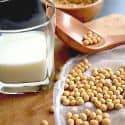 3. Unsweetened Soymilk + Add
3. Unsweetened Soymilk + Add
Protein
per 16oz GlassProtein
per 100gProtein
per 200 Calories14g
(28% DV)2.9g
(6% DV)17.5g
(35% DV) -
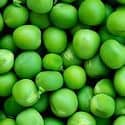 4. Green Peas + Add
4. Green Peas + Add
Protein
per Cup CookedProtein
per 100gProtein
per 200 Calories8.6g
(17% DV)5.4g
(11% DV)12.8g
(26% DV)See more vegetables high in protein.
-
5. Squash and Pumpkin Seeds + Add
Protein
per 1oz HandfulProtein
per 100gProtein
per 200 Calories8.5g
(17% DV)29.8g
(60% DV)10.4g
(21% DV)Other Nuts and Seeds High in Protein
- 6.9g (14% DV) per 1 oz handful of peanuts
- 6g (12% DV) per 1 oz handful of almonds
- 6g (12% DV) per 1 oz handful of pistachios
- 5.5g (11% DV) per oz of sunflower seeds
- 5.2g (10% DV) per oz of flax seeds
- 4.7g (9% DV) per oz (~2 tbsp) of chia seeds
- 4.3g (9% DV) per oz of cashews
-
 6. Quinoa + Add
6. Quinoa + Add
Protein
per CupProtein
per 100gProtein
per 200 Calories8.1g
(16% DV)4.4g
(9% DV)7.3g
(15% DV)Other Whole Grains High in Protein
- 9.8g (20% DV) per cup of kamut
- 9.8g (20% DV) per cup of teff
- 7g (14% DV) per cup of whole wheat pasta
- 5.9g (12% DV) per cup of oatmeal
- 4.4g (9% DV) per cup of grits
See the list of whole grains high in protein.
-
 7. Peanut Butter + Add
7. Peanut Butter + Add
Protein
2 TblspProtein
per 100gProtein
per 200 Calories7.7g
(15% DV)24.1g
(48% DV)8.2g
(16% DV) -
 8. Spinach + Add
8. Spinach + Add
Protein
per Cup CookedProtein
per 100gProtein
per 200 Calories5.3g
(11% DV)3g
(6% DV)25.8g
(52% DV)More Dark Leafy Greens High in Protein
- 5g (10% DV) per cup of cooked collard greens
- 3.5g (7% DV) per cup of cooked mustard greens
- 3.5g (7% DV) per cup of cooked Swiss chard
- 2.5g (5% DV) per cup of cooked kale
Note: Cooking reduces the water content of the greens, allowing you to eat more greens and protein per cup.
See the curated list of vegetables high in protein.
-
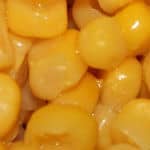 9. Sweet Corn + Add
9. Sweet Corn + Add
Protein
per Cup CookedProtein
per 100gProtein
per 200 Calories4.7g
(9% DV)3.3g
(7% DV)7.6g
(15% DV) -
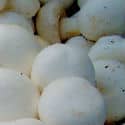 10. Mushrooms + Add
10. Mushrooms + Add
Protein
per Cup CookedProtein
per 100gProtein
per 200 Calories3.9g
(8% DV)3.6g
(7% DV)27.5g
(55% DV)More Mushrooms High in Protein
- 4g (8% DV) per cup of cooked portobello
- 3.5g (7% DV) per cup of cooked shiitake
- 3g (6% DV) per cup of oyster mushrooms
- 2g (4% DV) per cup of morels
- 2g (4% DV) per cup of cremini
- 1.5g (3% DV) per cup of enokis
Note: Cooking reduces the water content of mushrooms, allowing you to eat more mushrooms and more protein per cup.
See the curated list of vegetables high in protein.
Printable One Page Sheet
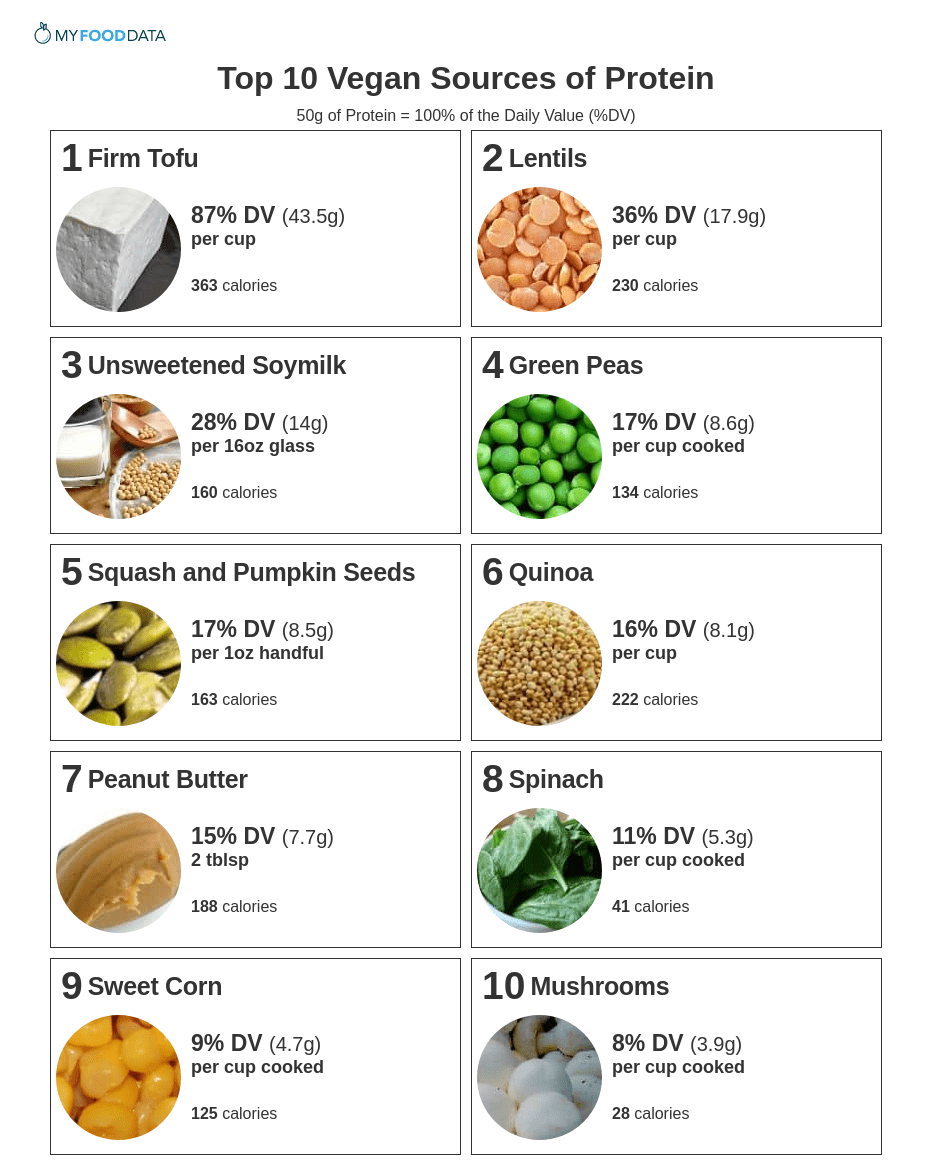
More Protein Rich Foods for Vegans
| Food | Serving | Protein |
|---|---|---|
| 1. Dry Roasted Soybeans + | per cup | 81% DV (40.3g) |
| 2. Natto (Fermented Soybeans) + | per cup | 68% DV (34g) |
| 3. Tempeh + | per cup | 67% DV (33.7g) |
| 4. Soybean Sprouts + | 1 cup | 18% DV (9.2g) |
| 5. Asparagus + | per cup cooked | 9% DV (4.3g) |
| 6. Guavas + | per Cup | 8% DV (4.2g) |
| 7. Artichokes (Globe or French) + | in a medium artichoke | 8% DV (4.2g) |
| 8. Raisins + | per oz | 2% DV (0.9g) |
From the Nutrient Ranking Tool
Use the ranking tool links below to select foods and create your own food list to share or print.
- Foods High in Protein
- Foods Low in Protein
- Vegetables High in Protein
- Fruits High in Protein
- Vegetarian Foods High in Protein
- Nuts High in Protein
- Grains High in Protein
- Beans High in Protein
- Dairy High in Protein
- Breakfast Cereals High in Protein
- Fast Foods High in Protein
View more nutrients with the nutrient ranking tool, or see ratios with the nutrient ratio tool.
Related
Data Sources and References
- François Mariotti and Christopher D. Gardner. Dietary Protein and Amino Acids in Vegetarian Diets—A Review. Nutrients. 2019 Nov; 11(11): 2661. Published online 2019 Nov 4. doi: 10.3390/nu11112661
- Anthony Crimarco, Matthew J. Landry, Matthew M. Carter, and Christopher D. Gardner Assessing the effects of alternative plant-based meats v. animal meats on biomarkers of inflammation: a secondary analysis of the SWAP-MEAT randomized crossover trial J Nutr Sci. 2022; 11: e82. Published online 2022 Sep 23. doi: 10.1017/jns.2022.84
- U.S.FDA - Daily Value on the New Nutrition and Supplement Facts Labels
- U.S. Agricultural Research Service Food Data Central
Simplify Nutrition Tracking with MyFoodData!
Speedy Tools and Detailed Data FREEEasily analyze your meals to find the best foods for your goals.
✅ Use our recipe nutrition calculator and nutrition comparison tool.
✅ Access expert nutrition data tools and in-depth articles.
✅ Log foods and organize your recipes with a free account.


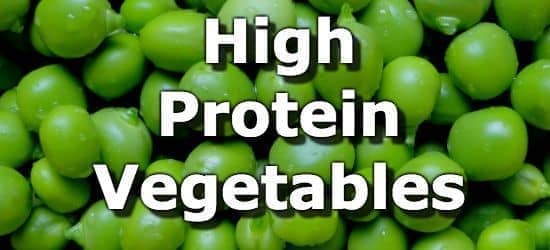 Next ➞
Next ➞
